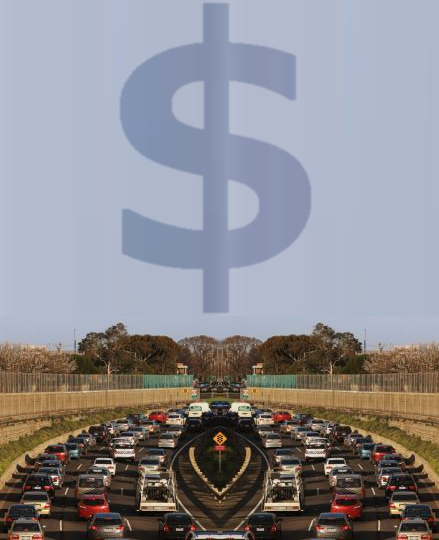East West report slams both sides
 Victoria’s auditor-general has slammed both sides of Victorian politics and the public service in his report on Melbourne’s failed $23 billion East West Link (EWL) project.
Victoria’s auditor-general has slammed both sides of Victorian politics and the public service in his report on Melbourne’s failed $23 billion East West Link (EWL) project.
“From its inception to its termination the EWL project was not managed effectively,” auditor-general Dr Peter Frost said.
He called it a case study in poor public administration.
Dr Frost said the audit; “Points out important and sobering lessons for government, the public officials who advise and serve it, and for taxpayers.”
Contrary to the $15-17 billion cost the LNP claimed, “the entire EWL project would have cost in excess of $22.8 billion in nominal terms”.
The $1.1 billion cost of bailing out on Stage 1 of the toll road, from Hoddle Street to CityLink, was picked up by News Corp papers in particular as a failure of the new Labor government.
But the vocal criticism both in the report and in the newspapers appear to have fallen on deaf ears, with the Premier and treasury rejecting the claim.
The auditor-general said the Victorian government was misrepresenting his conclusions.
“Disappointingly, they have failed to acknowledge critical deficiencies identified by the audit, and have rejected its recommendations. In their response to this audit, they have also made a number of assertions and drawn inferences which fundamentally misrepresent the content of my report,” Dr Frost said.
The Eats West Link was one of the largest and most complex infrastructure proposals in Australia’s history, but the plans were buried by the incumbent Labor government.
New premier Daniel Andrews said it would cost taxpayers around $339 million to cancel the contract.
The Victorian auditor-general’s office (VAGO) says the total cost of the termination was actually closer to $1.1 billion “with little tangible benefit for taxpayers”.
Some of that cost will be offset by the sale of properties compulsorily acquired for the project, which all up could bring around $320 million.
VAGO did not put all the blame on Victorian politicians though, saying the public service failed in its “fundamental obligation to provide frank and fearless advice” to government as well.
The report concedes that while the advice offered was “generally comprehensive, in some critical instances it fell short of the required standard of frankness”.
“The new government was... not provided with updated, comprehensive information on the impacts of completing the project versus the option of cancelling it,” the report states.
“This meant it was deprived of comprehensive advice to assure it that termination was the best use of public funds.”
The auditor-general said the deals made by the previous LNP government made it almost impossible to tell if taxpayers had had a win when the subsequent Labor administration destroyed the plans.
The review found it almost impossible to verify the expenses for the contractor, East West Connect Consortium (EWC), which included Capella Capital, Lend Lease, Acciona and Bouygues.
“The validity of project costs reimbursed by the state could not be fully verified because the state accepted EWC’s refusal to allow access to the financial records of its related party contractors. This created a risk that EWC’s related parties had a windfall gain,” the report said.
VAGO did not hold back in criticising the one-term Liberal government that started the EWL process, saying “likely net benefits of the project were not sufficiently demonstrated and the failure to properly resolve project risks before entering contracts exposed the state to additional financial risk”.
“Key decisions during the project planning, development and procurement phases were driven by an overriding sense of urgency to sign the contract before the November 2014 state election.
“The significant risks arising from this situation were further compounded by legal challenges to the project and by the absence of comprehensive advice on the potential benefits of deferring the signing of the contract.
“Signing the contract in these circumstances was imprudent and exposed the state to significant cost and risk.
“The risks associated with this decision were increased when the state agreed to amend the contract to provide additional compensation to EWC if the legal challenge to the project planning approval succeeded.
“The available evidence suggests that the state knew at the time that there was a significant risk that this would happen,” VAGO said, in a particularly stinging rebuke.
Dr Frost unleashed on public servants as well.
“It was clear the advice provided to the then government was disproportionately aimed at achieving contract execution prior to the 2014 state election rather than being in the best interests of the project or use of taxpayers’ money,” his report says.
“Over the life of this costly and complex project, advice to government did not always meet the expected standard of being frank and fearless.
“This highlights a risk to the integrity of public administration that needs to be addressed.
“Action and leadership is required from government to reinforce these standards and the related expectations for public servants.”
The full report is accessible here (in PDF form), while VGAO has also released the following video explaining its findings:








 Print
Print